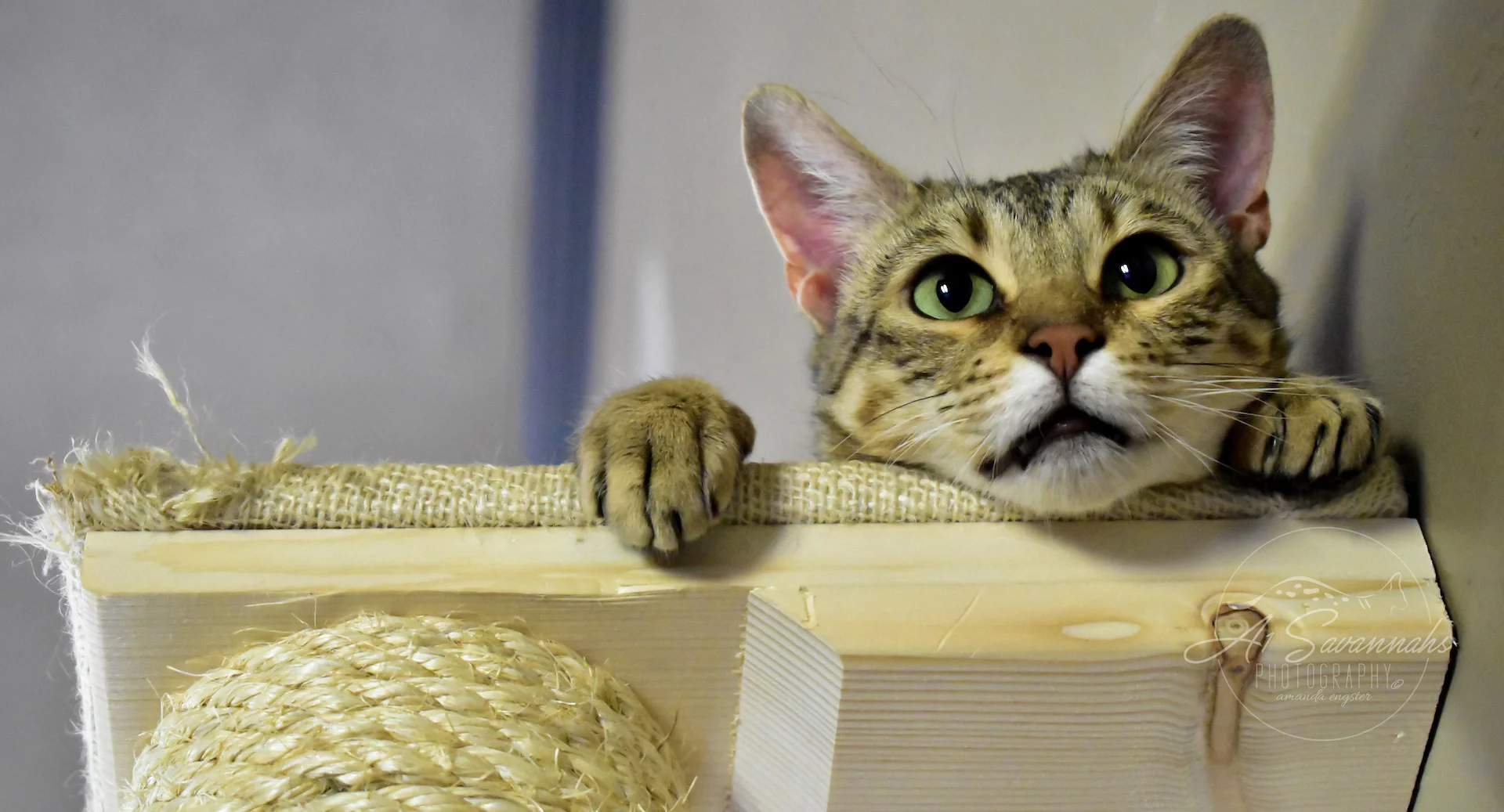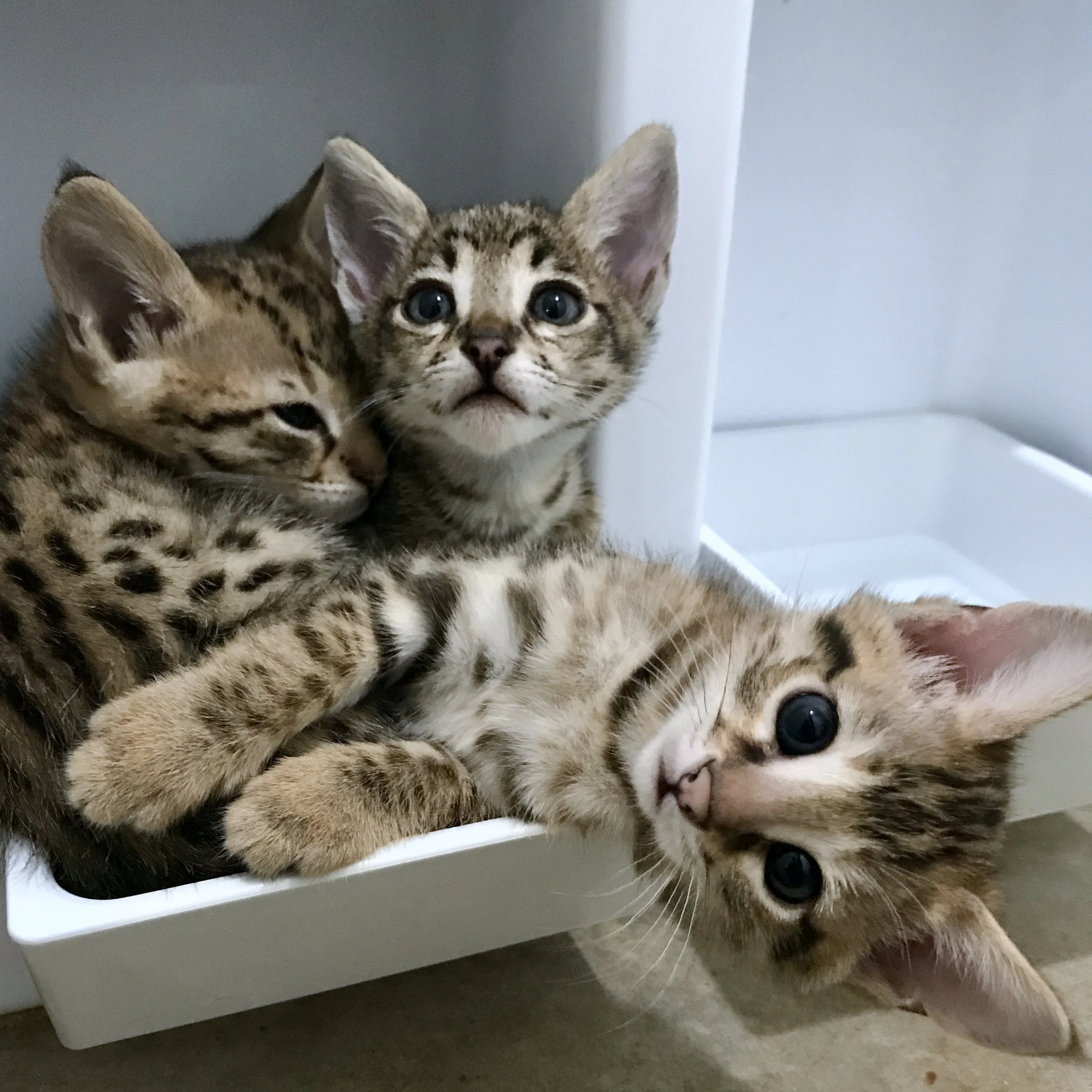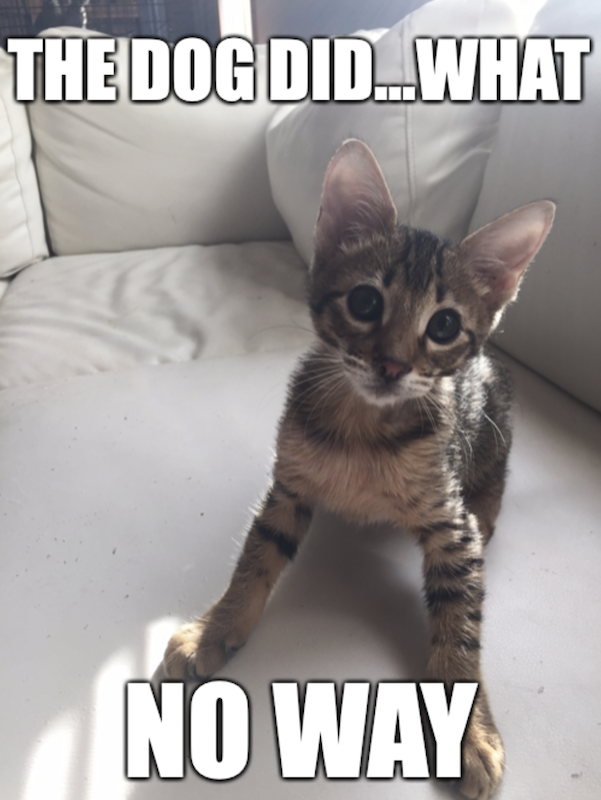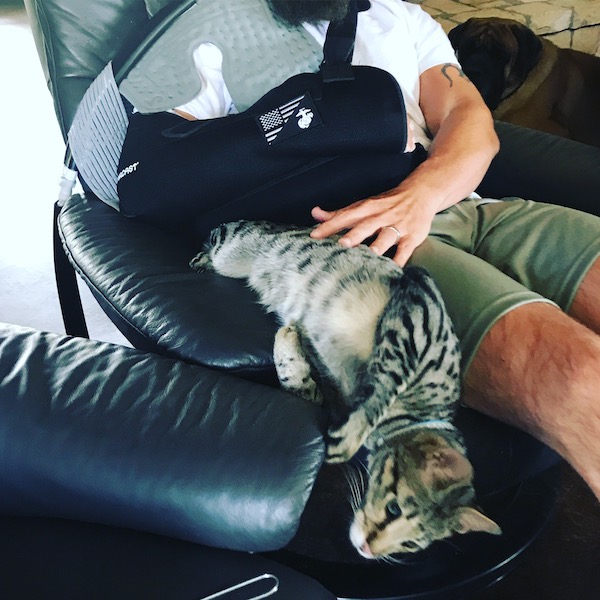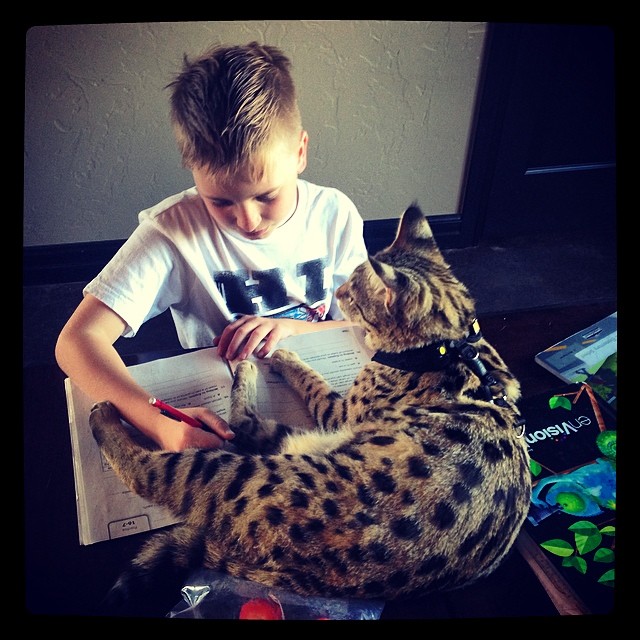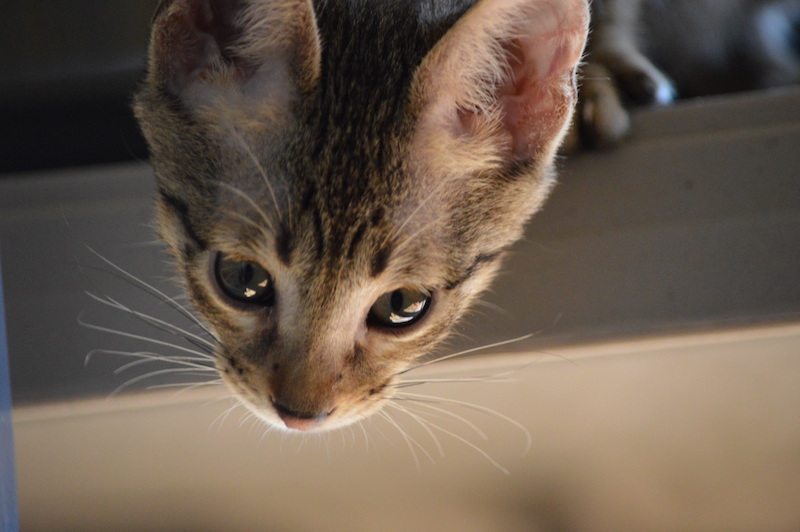A Savannah cat is one of the largest domesticated cat breeds in the world, and is a mix between the African Serval and domestic cat. This extraordinary breed became increasingly popular in the year 2000, and has been well-loved by cat enthusiasts all around. Savannah cats are lovely to look at, resembling the wild appearance of a cheetah , except it is smaller in size. With its dramatic spots and patterns, Savannah cat are one of the most beautiful cat breeds.
These cats are incredibly loyal, social, and friendly animals. Their temperament is, in fact, one of the reasons why it’s a highly sought after pet breed. If they get sick, it’s normal for their owners to be distraught. This is precisely the reason why you should be aware of the signs and symptoms of a sick Savannah cat. Below are some of the major symptoms when sickness occurs:
1. Your Cat Looks Physically Heavy
When you send your cat to the vet regularly, you’re going to be made aware of the weight that your cat has to maintain for it to be healthy. If your cat looks physically heavy, and if it already has a hard time walking or carrying its body, that is a tall tale sign that your Savannah cat is overweight and obese.
Obesity is a serious problem not just for human beings, but also for felines. It can shorten their lifespan by as much as two years. More importantly, obesity is the starting point for many other diseases like the following:
● Arthritis
● Diabetes
● Cancer
Your cat can maintain a healthy weight by staying physically active. Just as with human beings, they need physical activity for them to have better mobility through various forms of daily exercise and play.
Learn more about the correlation between weight and other diseases in both cats and dogs through Fuzzy Rescue.
2. Your Cat’s Eating Habits Have Changed
Changes in your cat’s eating habits are easy to spot, especially when you’re a hands-on owner. If there is anything out of the ordinary with the eating habits of your cat, this can be a great indication that they are sick. For instance, your cat may already feel too lethargic and ill that they’ll no longer have the desire or energy to eat. On the other hand, low insulin levels in their body may also cause your cat to eat more often than usual. Be alert with any changes that seem unusual to you, and have your vet take a look at your feline friend right away.
3. Your Cat Is Limping
Physical illnesses or disabilities in your cat are easier to detect because of the signs that start to manifest. One of these symptoms is having difficulty in walking or your cat is limping, which can be a common sign of arthritis. Arthritis is also prevalent in cats, especially since they move around a lot. You can observe this best when your cat stands up after laying down for a long time.
Along with limping, you should also make yourself aware of changes in your cat’s movements, such as a sudden difficulty in jumping or reaching high areas. Jumping is a common movement for cats, and when they seem more indolent and less active, this can be a warning sign that your cat may be sick.
4. Your Cat Starts To Show Rapid Breathing
Rapid breathing in cats isn’t normal. Typically, this symptom can progress quite quickly. You may not have paid attention to your cat’s difficulty in breathing because it wasn’t too consistent at first. But if it starts to progress more frequently through out the day, then you should visit your vet for a checkup. According to veterinarian Keong Kim, rapid breathing can be a symptom of lung or heart disease in your cat, so it is very important to have your cat examined by your veterinarian.Rapid breathing can be a symptom of lung or heart disease in your cat, so it is very important to have your cat examined by your veterinarian.
Conclusion
Savannah cats have quite a long lifespan. They can live from up to 20+ years. Hence, if you own one, you are sure to live with your cat for almost two decades. During this time you and your cat create an extreme bond that is unbreakable.
When your cat is ill, it’s inevitable that you’re going to be especially concerned. Same as is the case with human beings, awareness is the key to preventing serious health issues in your cats. Always be observant when it comes to your feline friends as changes in their behavior, energy levels, and appetite can tell you whether or not it’s time to send them to the vet.
There are so many things as a Savannah Cat owner you can do to prevent illness. Below you can find some of the things we recommend.
Until our next cat convo


